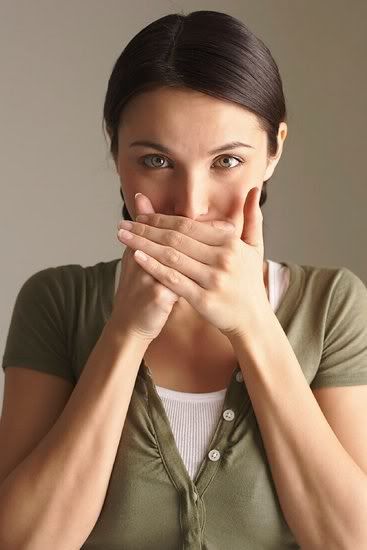
What Is Halitosis or Bad Breath?
Halitosis is a condition of having offensive or bad breath. Nobody wants to have bad breath, and many consumers are in search of products -- including toothpaste, mouthwash and mints -- that promise a quick cure for halitosis and fresher-smelling breath. Bad breath is often self-perceived and there is no test or device to diagnose or measure the problem. Breath mints or mouthwash may freshen the breath short-term, but don't often get to the root of the problem. A common source of bad breath is the mouth and tongue. Therefore, a trip to the dentist is the first step to rule out any dental problems.
What Causes Halitosis?
There are many different reasons for having bad breath, including:
- Decaying or Rotten Teeth -- Bacteria and acids in the mouth form a sticky deposit called dental plaque that clings to the teeth. If the plaque is not removed, the acids will destroy the tooth's enamel surface resulting in holes or cavities. If left untreated, tooth decay can result in a foul odor in the mouth.
- Food Trapped in the Teeth or Tongue -- Bacteria and food particles can become lodged in the teeth or stuck on the papillae (small projections on the tongue), causing bad breath. It's important to brush and floss the teeth, and brush the tongue and back of it to remove food debris. Tongue scrapers are also available to help remove debris from the tongue.
- Periodontal (Gum) Disease -- Pockets of plaque form between the teeth and gums -- causing inflammation and irritation to the gums. The constant inflammation can damage the ligament supporting the teeth and an infection can occur, eventually resulting in tooth loss. Gum disease can cause a bad taste in the mouth or halitosis.
- Sinus Problems -- Infections in the sinus cavity can contribute to bad breath.
- Xerostomia or “Dry Mouth” -- When there is decreased saliva in the mouth, for example, during the night, food and bacteria build up and can create odors.
- Systemic Diseases -- Certain medical conditions, such as diabetes, lung problems, and kidney and stomach disorders may contribute to bad breath.
- Odiferous Foods -- A diet rich in foods with strong odors, such as garlic and onions, is a surefire way to have bad breath.
- Smoking -- Smoking cigarettes, cigars or a pipe can produce halitosis.
- Menstruation -- Hormone changes in the body during menstruation may also cause bad breath.
How Should It Be Treated?
Good oral health care -- brushing the teeth and flossing -- will help reduce foul odors in the mouth. If you have chronic bad breath, visit your dentist, who can rule out dental problems such as decay or periodontal disease. The dentist may recommend that you visit your physician to determine if the problem is linked to a medical disorder. If bad breath is not related to a dental or medical condition, psychological problems may come into play. In rare cases, individuals become obsessed with body disorders. They may perceive that they have "bad breath," when in fact, they don't.
Source: Dentistry.com
Halitosis: Causes and Treatments for Bad Breath
8:41 PM |
Subscribe to:
Post Comments (Atom)







0 comments:
Post a Comment